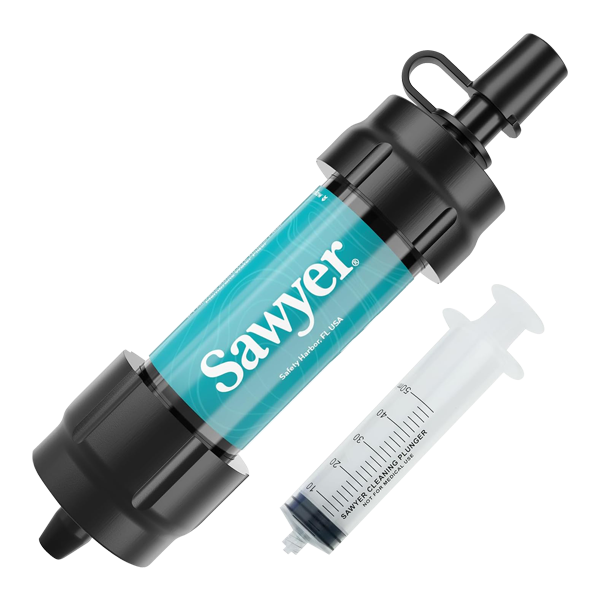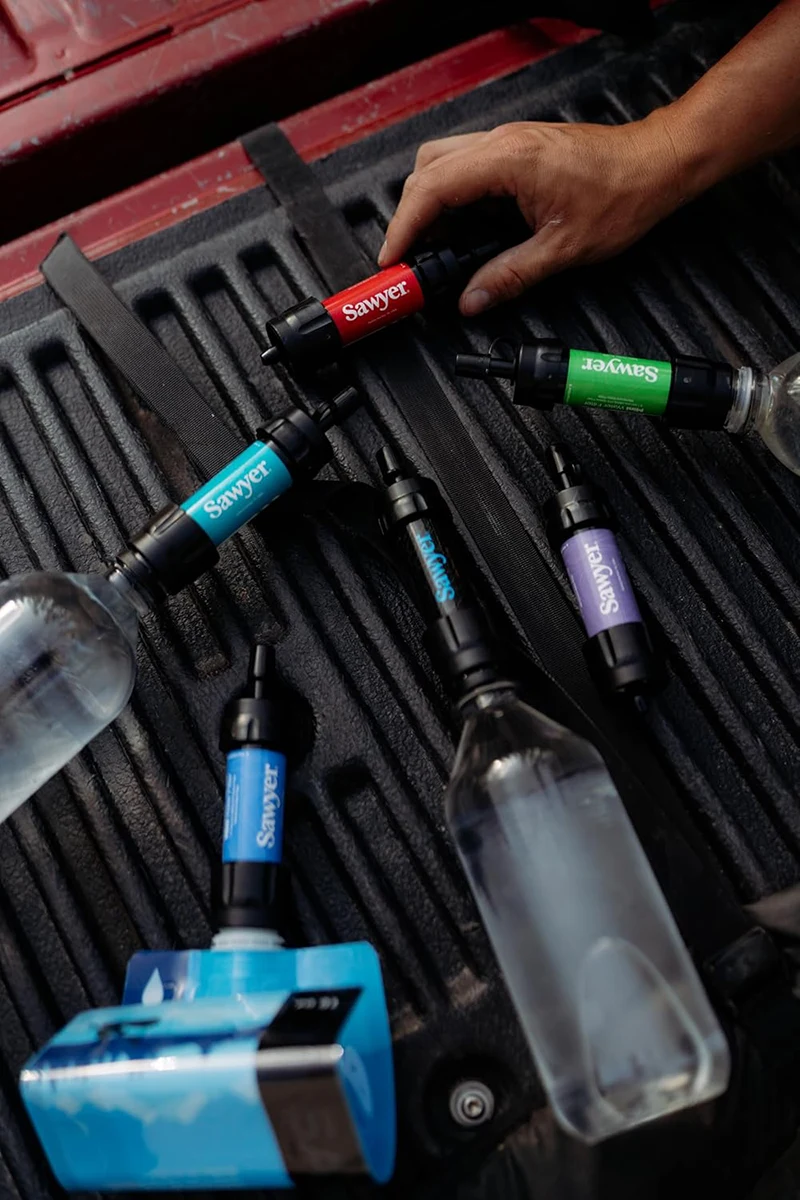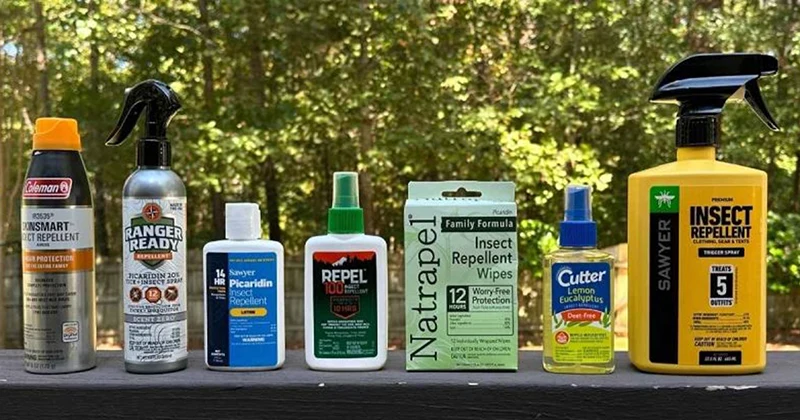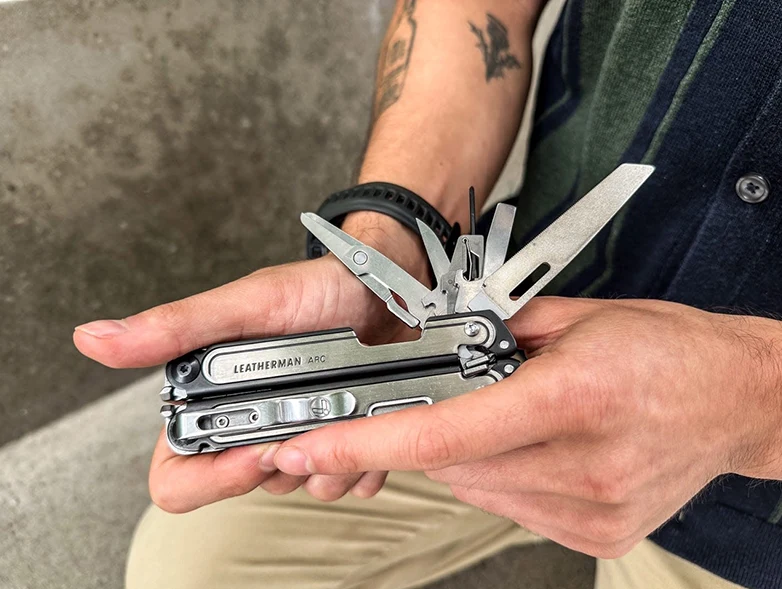Live Strong: The 8 Best Mosquito Repellents in 2022
Live Strong: The 8 Best Mosquito Repellents in 2022

Live Strong: The 8 Best Mosquito Repellents in 2022
YouTube video highlight
A review of the 8 best mosquito repellents in 2022
Read more about the projectThe 8 Best Mosquito Repellents in 2022
As exciting as the end of the cold winter months can be, it's hard to ignore the fact that warmer weather brings bugs — namely, mosquitoes. Luckily, having some of the best mosquito repellent on hand can help.
If you live in an area where spending time outside in the summer means risking bug bites, you're probably used to taking some basic steps to protect yourself.
In addition to wearing long sleeves and pants, using mosquito nets around your patio or room and avoiding standing bodies of water (read: emptying your bird bath), you should use a mosquito repellent that contains the right active ingredients.
How We Choose
We asked Elmer Gray, an entomologist and public health specialist at the University of Georgia Cooperative Extension Service, and Diane S. Berson, MD, an associate professor in the department of dermatology at Weill Medical College of Cornell University and assistant attending dermatologist at New-York Presbyterian Hospital for their input on the best mosquito deterrents.
Their picks are based on a repellent's active ingredients, staying power and if the repellent is the right type of product for the context you'll use it in (more on all of this below).
What to Look for in a Mosquito Repellent
There are several very effective repellents on the market today — you just need to know what to look for:
1. DEET or Picaridin
According to both Gray and Dr. Berson, there's no bug spray ingredient that's quite as effective as DEET.
Although DEET has been used since the 1940s, it's still the best option when it comes to hours of protection against mosquitoes, including ones that carry the Zika virus, West Nile virus and malaria, as well as ticks and gnats.
DEET is EPA-approved and safe to use, but it may be irritating for some people, especially if it's used excessively, at a high concentration (over 30 percent) or on those with sensitive skin.
Luckily, you can find DEET alternatives that are nearly as effective against mosquitoes. Other synthetic options include picaridin and the ingredient known commonly as IR3535. Dr. Berson says picaridin may be especially appealing because it's odorless.
2. Plant-Based Alternatives
Botanical or plant-based insect repellents tend to lack the staying power of DEET, Dr. Berson says. But, if you don't mind reapplying more frequently, this isn't necessarily a problem. Gray points to oil of lemon eucalyptus, which is derived from the leaves of lemon eucalyptus trees, as your best option. He adds that products containing catnip oil and oil of citronella can work well, too.
3. The Right Concentration
To a certain degree, the best bug spray is a matter of personal preference — say, whether you like the feel of an aerosol spray versus a wipe treated with repellent, or what active ingredient appeals most to you.
However, for longer stays in bug-infested areas or outings where you won't be able to reapply repellent easily, you should use a product with a higher concentration of active ingredients. A stronger product will help ensure you stay protected for as long as possible, Gray says.
Whether you want something lightweight and odorless or a repellent that you can apply on-the-go, there is a product out there to suit your needs. Here, we'll highlight some of the best options available right now. Find Sarah Coughlin's complete article here.
Live Strong: The 8 Best Mosquito Repellents in 2022


The 8 Best Mosquito Repellents in 2022
As exciting as the end of the cold winter months can be, it's hard to ignore the fact that warmer weather brings bugs — namely, mosquitoes. Luckily, having some of the best mosquito repellent on hand can help.
If you live in an area where spending time outside in the summer means risking bug bites, you're probably used to taking some basic steps to protect yourself.
In addition to wearing long sleeves and pants, using mosquito nets around your patio or room and avoiding standing bodies of water (read: emptying your bird bath), you should use a mosquito repellent that contains the right active ingredients.
How We Choose
We asked Elmer Gray, an entomologist and public health specialist at the University of Georgia Cooperative Extension Service, and Diane S. Berson, MD, an associate professor in the department of dermatology at Weill Medical College of Cornell University and assistant attending dermatologist at New-York Presbyterian Hospital for their input on the best mosquito deterrents.
Their picks are based on a repellent's active ingredients, staying power and if the repellent is the right type of product for the context you'll use it in (more on all of this below).
What to Look for in a Mosquito Repellent
There are several very effective repellents on the market today — you just need to know what to look for:
1. DEET or Picaridin
According to both Gray and Dr. Berson, there's no bug spray ingredient that's quite as effective as DEET.
Although DEET has been used since the 1940s, it's still the best option when it comes to hours of protection against mosquitoes, including ones that carry the Zika virus, West Nile virus and malaria, as well as ticks and gnats.
DEET is EPA-approved and safe to use, but it may be irritating for some people, especially if it's used excessively, at a high concentration (over 30 percent) or on those with sensitive skin.
Luckily, you can find DEET alternatives that are nearly as effective against mosquitoes. Other synthetic options include picaridin and the ingredient known commonly as IR3535. Dr. Berson says picaridin may be especially appealing because it's odorless.
2. Plant-Based Alternatives
Botanical or plant-based insect repellents tend to lack the staying power of DEET, Dr. Berson says. But, if you don't mind reapplying more frequently, this isn't necessarily a problem. Gray points to oil of lemon eucalyptus, which is derived from the leaves of lemon eucalyptus trees, as your best option. He adds that products containing catnip oil and oil of citronella can work well, too.
3. The Right Concentration
To a certain degree, the best bug spray is a matter of personal preference — say, whether you like the feel of an aerosol spray versus a wipe treated with repellent, or what active ingredient appeals most to you.
However, for longer stays in bug-infested areas or outings where you won't be able to reapply repellent easily, you should use a product with a higher concentration of active ingredients. A stronger product will help ensure you stay protected for as long as possible, Gray says.
Whether you want something lightweight and odorless or a repellent that you can apply on-the-go, there is a product out there to suit your needs. Here, we'll highlight some of the best options available right now. Find Sarah Coughlin's complete article here.
Live Strong: The 8 Best Mosquito Repellents in 2022


The 8 Best Mosquito Repellents in 2022
As exciting as the end of the cold winter months can be, it's hard to ignore the fact that warmer weather brings bugs — namely, mosquitoes. Luckily, having some of the best mosquito repellent on hand can help.
If you live in an area where spending time outside in the summer means risking bug bites, you're probably used to taking some basic steps to protect yourself.
In addition to wearing long sleeves and pants, using mosquito nets around your patio or room and avoiding standing bodies of water (read: emptying your bird bath), you should use a mosquito repellent that contains the right active ingredients.
How We Choose
We asked Elmer Gray, an entomologist and public health specialist at the University of Georgia Cooperative Extension Service, and Diane S. Berson, MD, an associate professor in the department of dermatology at Weill Medical College of Cornell University and assistant attending dermatologist at New-York Presbyterian Hospital for their input on the best mosquito deterrents.
Their picks are based on a repellent's active ingredients, staying power and if the repellent is the right type of product for the context you'll use it in (more on all of this below).
What to Look for in a Mosquito Repellent
There are several very effective repellents on the market today — you just need to know what to look for:
1. DEET or Picaridin
According to both Gray and Dr. Berson, there's no bug spray ingredient that's quite as effective as DEET.
Although DEET has been used since the 1940s, it's still the best option when it comes to hours of protection against mosquitoes, including ones that carry the Zika virus, West Nile virus and malaria, as well as ticks and gnats.
DEET is EPA-approved and safe to use, but it may be irritating for some people, especially if it's used excessively, at a high concentration (over 30 percent) or on those with sensitive skin.
Luckily, you can find DEET alternatives that are nearly as effective against mosquitoes. Other synthetic options include picaridin and the ingredient known commonly as IR3535. Dr. Berson says picaridin may be especially appealing because it's odorless.
2. Plant-Based Alternatives
Botanical or plant-based insect repellents tend to lack the staying power of DEET, Dr. Berson says. But, if you don't mind reapplying more frequently, this isn't necessarily a problem. Gray points to oil of lemon eucalyptus, which is derived from the leaves of lemon eucalyptus trees, as your best option. He adds that products containing catnip oil and oil of citronella can work well, too.
3. The Right Concentration
To a certain degree, the best bug spray is a matter of personal preference — say, whether you like the feel of an aerosol spray versus a wipe treated with repellent, or what active ingredient appeals most to you.
However, for longer stays in bug-infested areas or outings where you won't be able to reapply repellent easily, you should use a product with a higher concentration of active ingredients. A stronger product will help ensure you stay protected for as long as possible, Gray says.
Whether you want something lightweight and odorless or a repellent that you can apply on-the-go, there is a product out there to suit your needs. Here, we'll highlight some of the best options available right now. Find Sarah Coughlin's complete article here.






.png)

















































































































